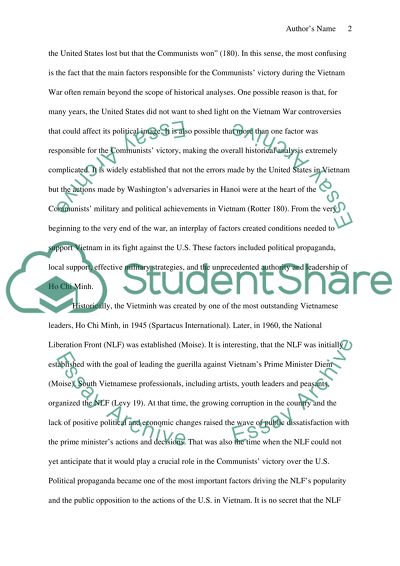Cite this document
(“Why Did Vietminh and NLF Win the Vietnam War Essay”, n.d.)
Why Did Vietminh and NLF Win the Vietnam War Essay. Retrieved from https://studentshare.org/history/1445174-why-and-how-did-the-viet-minh-and-nlf-win
Why Did Vietminh and NLF Win the Vietnam War Essay. Retrieved from https://studentshare.org/history/1445174-why-and-how-did-the-viet-minh-and-nlf-win
(Why Did Vietminh and NLF Win the Vietnam War Essay)
Why Did Vietminh and NLF Win the Vietnam War Essay. https://studentshare.org/history/1445174-why-and-how-did-the-viet-minh-and-nlf-win.
Why Did Vietminh and NLF Win the Vietnam War Essay. https://studentshare.org/history/1445174-why-and-how-did-the-viet-minh-and-nlf-win.
“Why Did Vietminh and NLF Win the Vietnam War Essay”, n.d. https://studentshare.org/history/1445174-why-and-how-did-the-viet-minh-and-nlf-win.


